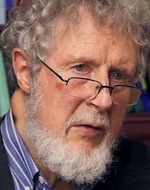
Reprinted from the Cornell Chronicle, March 6, 2017.
By Susan Kelley
Robert J. Sternberg, professor of human development in the College of Human Ecology, has been selected to receive the 2017 William James Fellow Award from the Association for Psychological Science. The award is given annually and honors association members for their lifetime of outstanding intellectual contributions to the basic science of psychology.
Sternberg will receive the award and deliver an address during the association’s 29th annual convention May 25-28 in Boston. His address will discuss society’s promotion of intelligence at the expense of wisdom, resulting in an overpopulation of “smart fools:” people with decent or even stellar IQs whose preoccupation with themselves and others they perceive to be “like them” – at the expense of people “not like them” – imperils society and the world.
Sternberg transformed the study of intelligence with his “triarchic” theory of successful intelligence. It distinguishes among three aspects of intelligence: analytical, creative and practical. In a more recent augmented version of the theory, Sternberg has added a fourth aspect: wisdom. Within this framework, Sternberg and his colleagues have developed assessments to identify people who are gifted in ways that IQ and other standardized tests do not capture. According to Sternberg, successful intelligence is one’s developed ability to create and implement a meaningful life plan that enables one to achieve success according to one’s own concept of success, and to work toward achieving a common good.
“I’m honored to receive this award, which reflects in small part my contributions over the years and in large part the contributions of my advisers, students and family to making my career possible,” Sternberg said. “The award thus is really a collective one, as are all scientific awards, to the large network of colleagues and family who contribute to an individual career.”
Sternberg has tested and supported his intelligence theories using several kinds of methods. These include reaction time and error rate, cultural, convergent and discriminant, and instructional analysis, among other methods. His insights have had relevance for teaching, university admissions policy, the understanding of developmental processes and the prediction of leadership potential, the association said.
Sternberg is the author of more than 1,600 peer-reviewed research publications. His work has been cited by academic authors 124,410 times. He is the third-most frequently cited living author in introductory-psychology textbooks.
“His prolific efforts in bringing theories, methods and applications together in landmark handbooks and other publications have advanced our ability to facilitate human achievement,” according to a statement from the association.
Sternberg is past president of several national organizations, including the American Psychological Association and the Federation of Associations in Behavioral and Brain Sciences. He is also the editor of the journal Perspectives on Psychological Science.
Sternberg previously won the James McKeen Cattell Award from the same association for his contributions to applications of psychological science.














